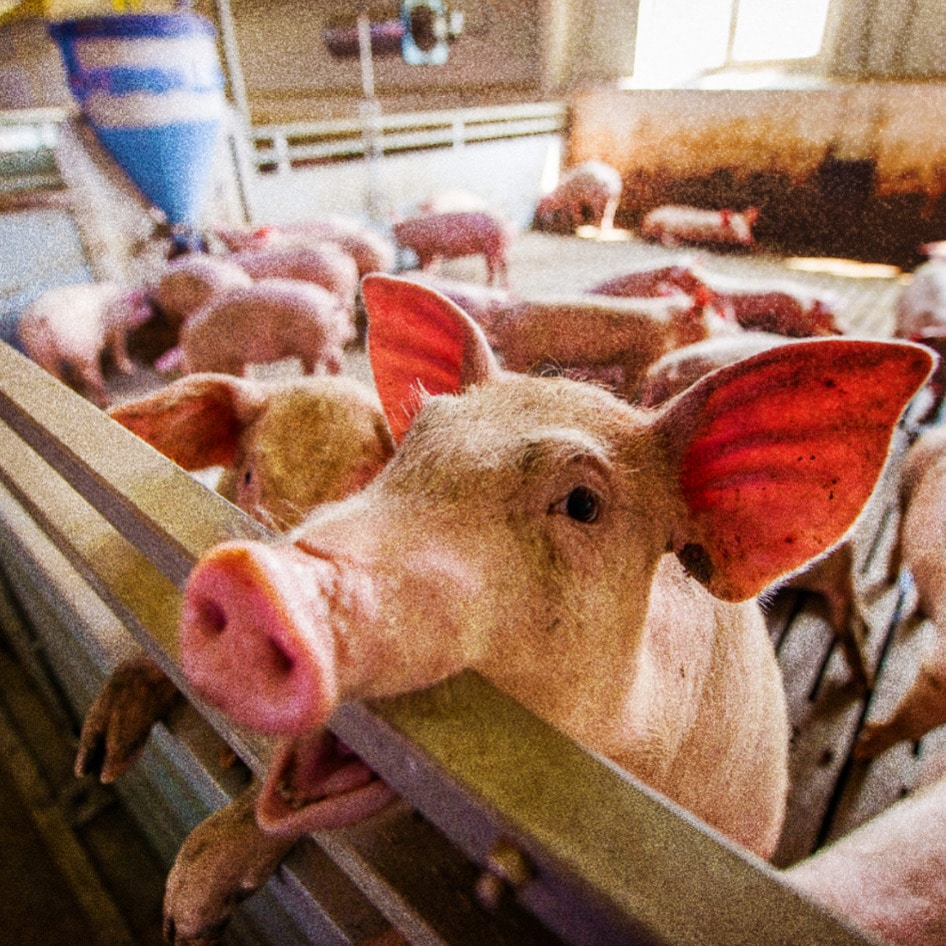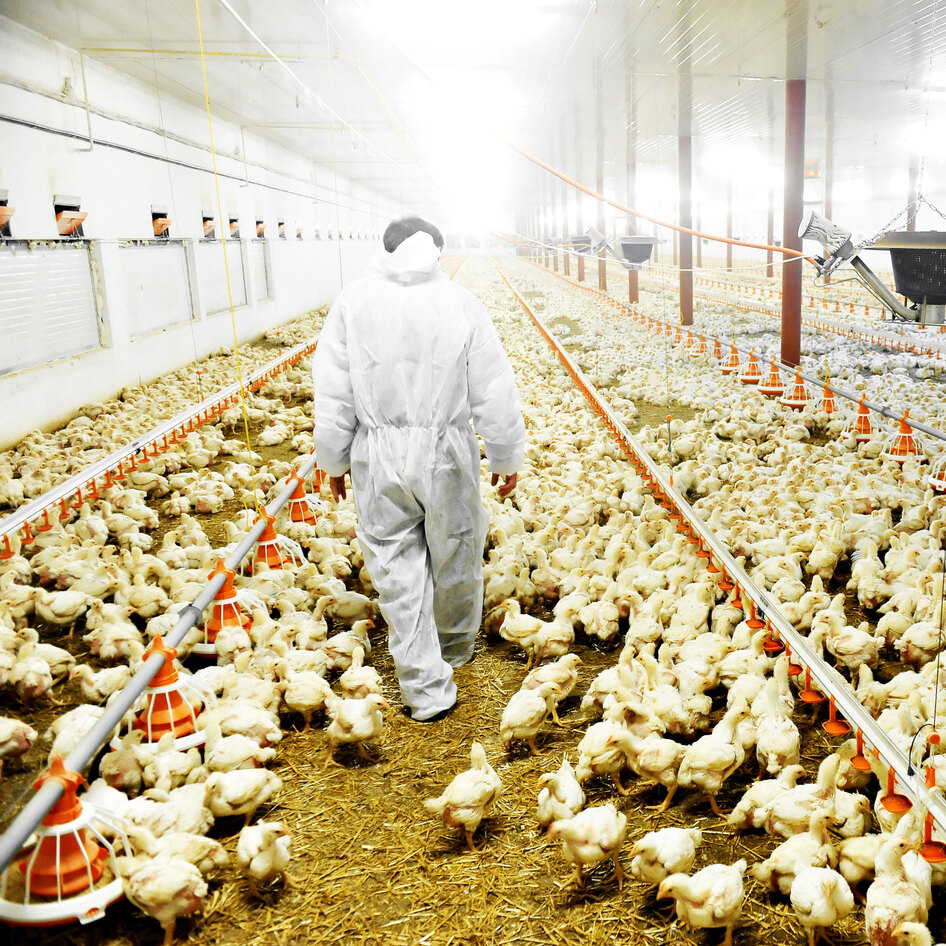The COVID-19 pandemic has created a crisis within the global meat industry. Since the beginning, when we first learned that the devastating disease likely originated from a live animal market in Wuhan, China, we have been given a rare opportunity to peek into the filthy business of animal slaughter—revealing that it hurts more than just cows, pigs, chickens, bats, and other animals, but also slaughterhouse workers, our health, and our food supply. It’s moments like these that present opportunities to rethink the way we’ve always done things—and to figure out how we can do better. With COVID-19 still circulating months later, it’s undeniable that a post-pandemic food system must include a shift away from industrialized animal agriculture. Here are seven reasons why COVID-19 is finally forcing our hand when it comes to raising animals for food.
1. It has spread like wildfire among slaughterhouse workers.
In recent weeks, we’ve learned that huge swaths of the workforce at meat processing plants have been infected with COVID-19—and reports suggest this occurred because meat companies failed to protect its employees and pressured them to work even while sick. As a result, many slaughterhouses across North America have been forced to cut back on operations or shut down to accommodate absenteeism and social-distancing protocols in an effort to control the spread of the virus. This has been a painful lesson in the meat industry’s vulnerabilities and reveals its lack of concern for the welfare of its workers.
2. It has broken the meat industry’s supply chain.
Slaughterhouse workers falling ill to COVID-19 has thrown a wrench in the meat supply chain while exposing its inefficiencies and wastefulness. With slaughterhouses reducing or completely shutting down operations, farmers are making a business decision to kill countless healthy animals—by running them through a woodchipper, bashing their heads, or suffocating them—because the animals aren’t being sold to slaughterhouses for profit. This disruption in the supply chain is causing meat shortages in supermarkets everywhere.
3. It has empowered vulnerable slaughterhouse workers to take action.
Slaughterhouse workers are disproportionately marginalized, often immigrants or temporary workers who have limited work options. In addition to working in dangerous conditions, they are now also dealing with the added risk of COVID-19 infection. Worker unions are starting to take action against meat companies. Among the numerous lawsuits, nonprofit Rural Community Workers Alliance (RCWA) and an anonymous slaughterhouse employee are suing meat giant Smithfield for failing to protect its workers amid the pandemic.
4. It confirms that factory farms are breeding grounds for deadly diseases.
The rapid growth of COVID-19 has taught us a great deal about zoonotic diseases, which are directly linked to our exploitation and consumption of animals. The majority of the meat that consumers eat today comes from animals who are packed by the thousands into large buildings or stacked cages. These industrial complexes are breeding grounds for diseases, many of which have the ability to move fluidly between animals and humans.
5. It shows that the meat industry can’t adapt to change.
Companies that rely on raising and slaughtering animals for food will likely struggle to adapt to the “new normal” long after the pandemic is over. With its current challenges likely continuing into the future, there will be a meat-shaped hole at supermarkets and food-service providers. Plant-based companies like Beyond Meat will succeed in filling this gap by increasing their production capacity and selling their products at a lower price (and it’s happening right now).
6. It validates the connection between wet markets and slaughterhouses.
COVID-19 is known to have originated from a live animal market, while similar threats such as swine flu and bird flu evolved on chicken and pig factory farms. Though it was rarely talked about pre-COVID, the connection between factory farms and wet markets is abundantly clear. Consumers have been hit hard with the undisputed fact that zoonotic diseases happen where animals are exploited, and the effects can be devastating.
7. It’s forcing the laws to change (for the better).
Once it became established that a number of people contracted COVID-19 after visiting a wet market in Wuhan, the country shut down 19,000 wildlife-farming operations and banned the sale of wild animal meat in wet markets. Since then, lawmakers have been putting their focus on cleaning up factory farming operations. New Jersey Senator Cory Booker, for example, is introducing legislation that aims to break up the monopoly of the meat industry—which is currently concentrated between four companies in the United States—and ban any future factory farms. If being a giant meat company soon becomes illegal, the whole industry will crumble.
Nicole Axworthy is the News Editor of VegNews and author of DIY Vegan who would give her right arm to live in a world where slaughterhouses don’t exist.
JUMP TO ... Latest News | Recipes | Guides | Health | Subscribe







